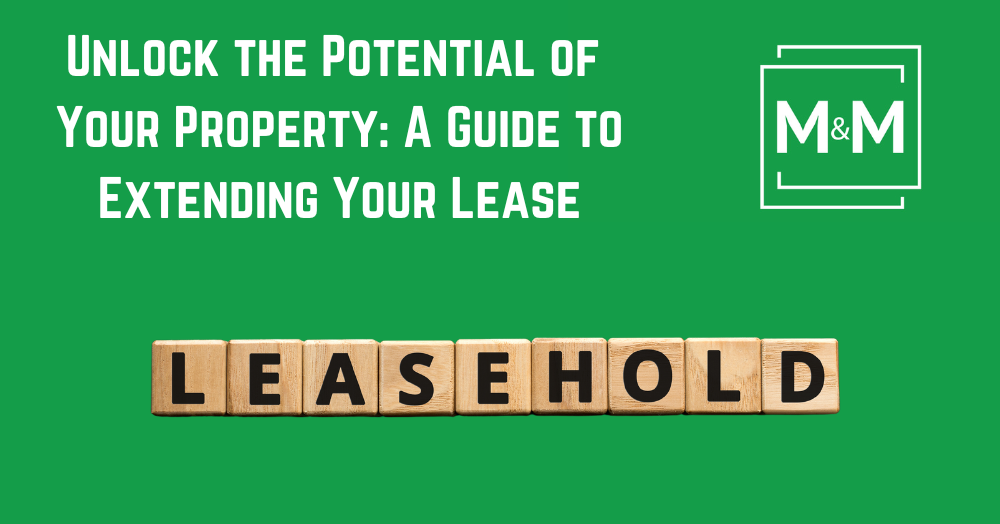
A Comprehensive Guide to Extending Your Lease in the UK
Are you a leaseholder in the UK wondering how to extend your lease? You're not alone.
Many leaseholders find themselves in a similar situation, seeking to extend their lease for various reasons.
Whether you're planning to sell your property or simply want to secure your investment, understanding the process of lease extension is crucial.
In this blog, we'll walk you through the steps involved in extending your lease and help you determine the right time to begin the process.
Understanding Lease Extension:
First things first, let's clarify what a lease extension entails. As a leaseholder, you own the right to occupy a property for a fixed period, typically ranging from 99 to 125 years. However, as the lease term decreases, the value of your property may diminish, making it harder to sell or remortgage. Extending your lease allows you to regain control and add value to your property.
When to Consider Extending Your Lease:
While it's never too early to start considering a lease extension, there are certain milestones that may prompt you to take action:
1. Lease Length: As your lease term approaches 80 years or less, the cost of extending your lease may increase significantly due to marriage value, a key component in lease extension calculations. Therefore, it's advisable to start exploring your options in advance to avoid unnecessary expenses.
2. Future Plans: If you're planning to sell your property or refinance your mortgage, a shorter lease term could deter potential buyers or lenders. Extending your lease ensures that you maintain marketability and maximize your property's value.
3. Maintenance Issues: As a leaseholder, you may be responsible for contributing to the maintenance and repair costs of the building through service charges. Extending your lease can provide you with greater control over the management of the property and potentially reduce service charges.
Steps to Extend Your Lease:
Now that you've decided to extend your lease, here's a step-by-step guide to help you navigate the process:
1. Seek Professional Advice: Consult a solicitor or a specialist lease extension surveyor who can guide you through the legal and financial aspects of extending your lease. They can assess your eligibility, calculate the likely costs, and represent your interests during negotiations with the freeholder.
2. Check Eligibility: Ensure that you meet the eligibility criteria for lease extension under the Leasehold Reform, Housing and Urban Development Act 1993. Generally, you must have owned the property for at least two years before you can apply for a lease extension.
3. Serve a Section 42 Notice: Once you're ready to proceed, serve a formal notice to your freeholder, known as a Section 42 Notice, expressing your intention to extend the lease. This initiates the statutory lease extension process, and the freeholder has a prescribed period to respond.
4. Negotiate Terms: The freeholder may respond with a counter-notice, proposing terms for the lease extension, including the premium (price) and the extended lease term. Negotiate these terms with the assistance of your solicitor or surveyor to ensure a fair outcome.
5. Agree on Terms or Refer to Tribunal: If you're able to reach an agreement with the freeholder, the terms of the lease extension can be formalised through a deed of variation. However, if negotiations are unsuccessful, you may refer the matter to the First-tier Tribunal (Property Chamber) for determination.
6. Complete the Lease Extension: Once the terms are agreed upon, the lease extension is completed by executing the deed of variation and paying the agreed premium to the freeholder. Your solicitor will handle the legal formalities and register the extended lease with the Land Registry.
Conclusion:
Extending your lease in the UK is a proactive step towards safeguarding your investment and securing your property's future value. By understanding the process and seeking professional advice, you can navigate the complexities of lease extension with confidence. Whether you're planning to sell or simply want peace of mind, taking action early can save you time, money, and unnecessary stress in the long run. If you're considering extending your lease, don't hesitate to reach out to a qualified solicitor or surveyor who can provide personalised guidance tailored to your circumstances.